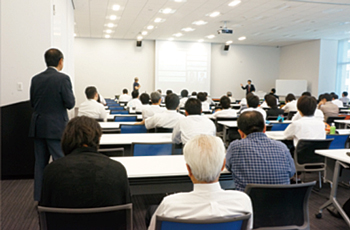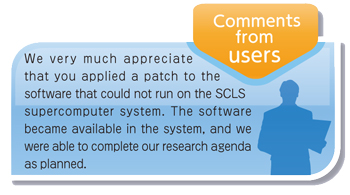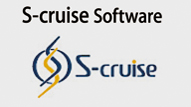
5th workshop on HPCI with the K computer as primary resource for drug discovery and medicine
Osaka University Graduate School of Engineering Science has been conducting an “Education Program for Predictive Medicine and Drug Discovery on a High Performance Computing Infrastructure (HPCI)” jointly with the Graduate School of Information Science and Technology since 2011, as part of the “Supercomputational Life Science(SCLS)”. The core of this education program is the pair of classes “Biosimulation” and “Bioinformatics” provided for graduate students who will be main player in super-computational science/engineering. These subjects are also provided as part of the “Osaka University Graduate Program for Advanced Interdisciplinary Studies” through the Center for Advanced Medical Engineering and Informatics (MEI Center) educational program, and will accept students from all graduate schools by arranging the classes on Saturdays.
These classes are, at the same time, open to engineers/researchers of industries and graduate students of other universities as part of the MEI Center Skill Course, an Osaka University Extension. In this framework, the auditors will be given certificates issued by the President of Osaka University.
As an outreach activity, a series of workshops on HPCI with the K computer as a primary resource for drug discovery and medicine has been held annually in Osaka and Tokyo. This provides a forum to translate the outputs of frontier research towards in-silico drug design, in-silico medicine and predictive medicine at academic and research institutions into advanced industrial technologies by inviting lecturers from cutting-edge research groups. Plenary/keynote lectures as well as sessions are organized at conferences hosted by academic societies/institutes in order to promote high performance computing in bioengineering, bioinformatics and life sciences, among others.
This year, an introductory class entitled “Introduction to Biosimulation” is being launched for university freshmen regardless of their academic study area to provide an opportunity to open their eyes to supercomputing science/engineering. These activities are aimed at encouraging the young generation, especially current students, to engage in computational pharmaceutics, medicine and bioengineering. For details, please visit the website at http://hpci.me.es.osaka-u.ac.jp/




















